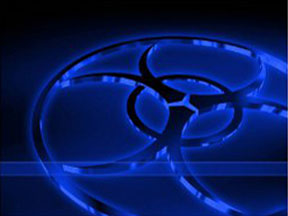Online Global Threats – Hacking Phishing & Viruses
How safe are those Social Networking Sites..?
Nobody can be spared from Hacking Phishing & Virus attacks in one way or another.
The internet is constantly evolving and not getting your personal information stolen is not just about making sure that your computer is squeaky clean from any sort of nasties such as virus or spyware.
Diy Computer Repairs shows you some of the untold ways that you can unknowingly get your personal data landing in the wrong hands & how best to avoid these dangers.
..
Surfing in safe sites only
There are social networking sites like facebook or twitter that we think are safe place to be. But the millions of applications or links in there may not be totally safe. Hackers love to dwell in places where traffic is unlimited. Trend Micro has said that bogus updates and phlishing tricks in lots of ways are spotted in social networking sites that caused a lot of victims to accidentally reveal their personal particulars.
Look at how many links and videos or applications are actually spread around the social networking sites everyday. Some hackers create a link that would take you out to another page and ask you to key in your login and password. The page is designed to look almost identical to the site you are in. If you are not careful and you think that it is only the application asking for the login. Look at the URL again.
Downloading of PDF files
Downloading of free E-books and reading articles in the form of PDF is another way to get infected. Amazingly unbelievable but true. PDF has evolved so much that it is no longer in the form of just text and image., even flash animation can be included into one PDF file. Thus opening a huge horizon of limitless imagination for the hackers to include their code. Always exercise caution and update your antivirus definitions. Also get the latest version of Adobe reader so that this software is updated enough to tell the bad code in a hackers PDF. Don’t be lazy and think that the new versions are no big deal.
Infection Alerts From The Browser
Don’t be a gullible idiot and turn pale at every message or warning that jumps right in front of you telling you that your computer is infected. Look at it carefully to see if it is actually a page from the browser. A lot of bogus software on the internet makes use of outstandingly designed ads that look like a real warning from your computer. Most of them even have a click to buy on the fly button.
If you already have an antivirus in place. Do not EVER believe in such warnings. Unless the warning message comes from your antivirus software itself. For example, If you installed Norton. Then you should see the alert from Norton not an alert from squid antivirus for example.
Saying yes to all these not only make your computer vulnerable to more attacks , if you pay for it , you not only lose your money but also your credit card information. Remember to inform the bank immediately.
Emails From A Friend Or Company
The email address may be from someone you know, but the sender may not be aware that this message is sent out to you. If your friend’s computer has been infected, the program can send out spam to all his contacts without him knowing. So if you see an email from your friend recommending something , call him, SMS, or MSN to verify if indeed he recommended such a product. Do not forward it on yet or you will only be aiding the spammer who wanted that to happen.
Breaking News Or Attractive Titles
Sometimes you get to see titles of links that describe something too attractive to resist. Photos of Hot babes or Exclusive photos of Micheal Jacksons dead body. Most malware sites want to lure as much bait to their site first. Once the victim lands on the site, harmful files will be loaded onto the computer via temp internet files. So when you click on another link on the site that may say ” watch the video here ” . It actually executes the file in your computer. Always be wary of such titles and stick to legit sites for latest snoops and news. Or you can download McAfee’s Site Advisor tool . This plugin allows you to check if a certain site is safe first before you really go to it.
6 Comments Already
Leave a Reply
You must be logged in to post a comment.

These are the very reasons which can get your computer infected…. using a good anti virus and a firewall might help to protect your computer..
Good info! Be sure not to use more than one anti-virus at the same time as they may conflict.
They don’t only affect your computer’s health but also let you lose all your personal information and documents!
Always get your best software security for your computer, there are many possible infection from anywhere. Keep your good work!!
One must be aware of the above mentioned points will surfing the web to safeguard himself/herself from online phishing scams or other malware programs. Valuable post.
hello;all that you presets here are a source of viruses.All we can do is to have a good antivirus which can protects us against threats.I have Kasperky antivirus which is the first in top ten best antiviruses http://www.best-antivirus.co/
good luck